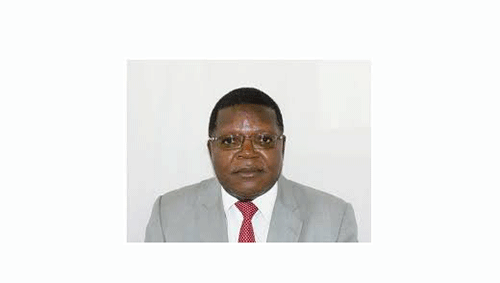The Namibia Students Financial Assistance Fund (NSFAF) in July this year launched a feasible recovery plan in an attempt to collect several millions of dollars owed to the fund by beneficiaries who have reneged on paying back their loans.
The recovery scheme, which encourages loan defaulters to pay back the exact amounts of the loans they obtained from NSFAF without any penalties charged to them, will run up to 30 June 2023.
Although various attempts have been made in the past to recoup the loans with little success, it appears the current recovery strategy is going to encourage many loan holders to come to the fore and make payment arrangements with NSFAF.
This initiative is aimed at collecting more funds to help more students.
What is attractive with the current recovery plan is that there are no penalties and that former students can make arrangements to pay back their loans from wherever they are stationed in the world.
It must be emphasised that paying back the loans is very important because the funds will be used to cater for more tertiary students.
It has been established that many students meet the requirements for tertiary education funding, but NSFAF cannot cater for all huge numbers of students because of limited funds.
But if more loan holders pay back their loans, more students will have an opportunity to benefit from the fund.
Therefore, it is in the interest of the public to encourage former students to honour their obligations by making payment arrangements with NSFAF.
It is for this reason that community leaders, politicians, church leaders and governors are called upon to spread the news about the NSFAF’s loan recovery strategy throughout the country so the loan holders can come forth and make payment arrangements.
Also, these leaders must assist in making learners, especially in rural areas know about the financial assistance they can get from NSFAF when they register at any higher education institution as long as it is accredited by the Namibia Qualifications Authority (NQA).
When I visited NSFAF’s stall at the Windhoek Agricultural and Livestock Show this week, I was impressed to see testimonies and encouragements from former beneficiaries of the fund.
Josephine Shikukutu, a paediatric nurse from the Ministry of Health and Social Services, had this to say: “In 2004, I got my funding to study for a diploma in nursing science.
My parents were pensioners and therefore could not afford it. I decided to pay back the loan because it is beneficial to the future generation. It is the right thing to do. It can be your child, it can be your grandchild.”
Another thought-provoking statement of encouragement came from David Shiimi, an artisan in the Office of the President, who said: “Some of us have paid back not because we have money, but for the sake of future generations.
What NSFAF has done is not for us, it is for future generations. Without NSFAF, there is no education in Namibia. If you fail to honour, NSFAF will not survive, and future generations will be at risk.”
It is, therefore, prudent for loan holders to pay back so that NSFAF can fulfil its mandate of assisting higher education students.
It is also true that the majority of the population, especially African students, were largely excluded from higher education by the colonial regimes.
We, therefore, see NSFAF as a government institution that is earnestly attempting to balance the imbalances of the past in higher education.
We can also learn from how the collection of loans is done in South Africa.
According to South Africa’s Roy Jackson, “Collection of loan repayments can take several forms. Borrowers are encouraged to repay their loans directly to the National Student Financial Aid Scheme of South Africa (NSFAS) by bank deposits or direct debit, but the 1999 Act gave NSFAS statutory powers to recover outstanding debts by instructing employers to make deductions from borrowers’ salaries if they are not repaying their loans.
The NSFAS head office sends the names and identity numbers of its debtors to the South African Revenue Services, which provides NSFAS with details of the employers of its debtors. NSFAS can instruct employers to make loan repayment deductions from salaries of NSFAS debtors and pay these to NSFAS.”
As I see it, loan holders should immediately grab the opportunity offered by the grace period of a whole year that NSFAF has given to them to arrange how they can settle their loans.
Let us remember that thousands of students are waiting in the queue to be assisted financially by NSFAF.
If generations are to continue benefiting from NSFAF in higher education, loan holders must therefore assist NSFAF loan recovery efforts. This email address can save your day: recovery@nsfaf.na


